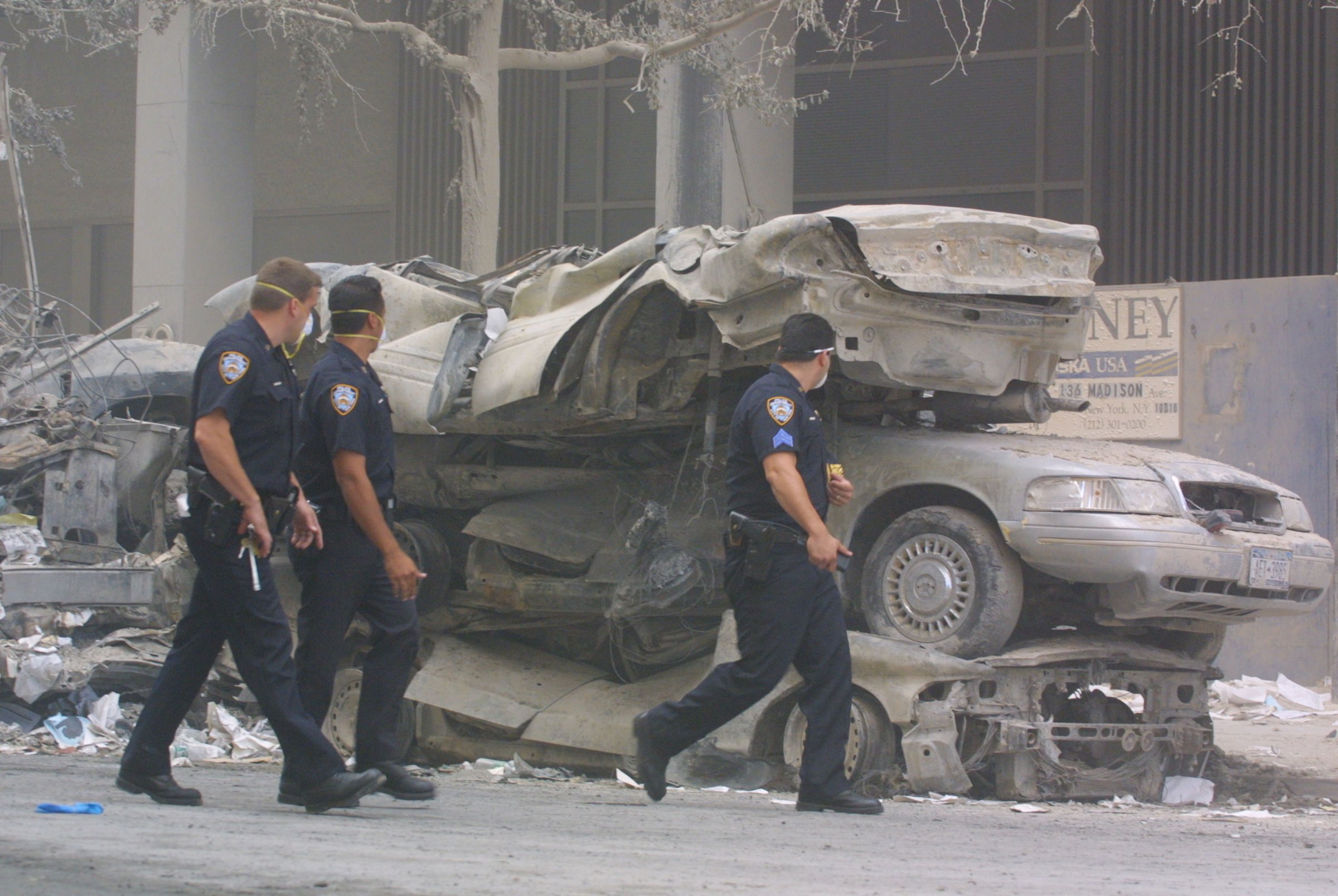
New York City police have 50% more cancer diagnoses following 9/11 than they did before the terrorist attack, according to the results of a long-term study made public Friday.
The study, obtained exclusively by The New York Post and conducted by researchers from Columbia University and Weill-Cornell Medical College, found that between 2002 and 2014 cancer rates over all in the NYPD increased about 50% compared to the period from 1995 to 2001. The largest increases happened in four relatively rare cancer types: malignant brain tumors, kidney cancer, thyroid cancer and non-Hodkin’s lymphona.
The findings may support fears that first responders to 9/11 suffered long-term health consequences from the cloud of toxic debris kicked up by the collapsing World Trade Centers, which lingered for days after the attacks. Researchers noted that there is debate as to whether improved cancer screenings over time may have affected cancer discovery rates over the courts of the study.
The study also noted that cancer rates for police tend to be lower than for the general population because police tend to be in better physical shape than the average American.
[NYPost]
More Must-Reads from TIME
- Why Biden Dropped Out
- Ukraine’s Plan to Survive Trump
- The Rise of a New Kind of Parenting Guru
- The Chaos and Commotion of the RNC in Photos
- Why We All Have a Stake in Twisters’ Success
- 8 Eating Habits That Actually Improve Your Sleep
- Welcome to the Noah Lyles Olympics
- Get Our Paris Olympics Newsletter in Your Inbox
Contact us at letters@time.com